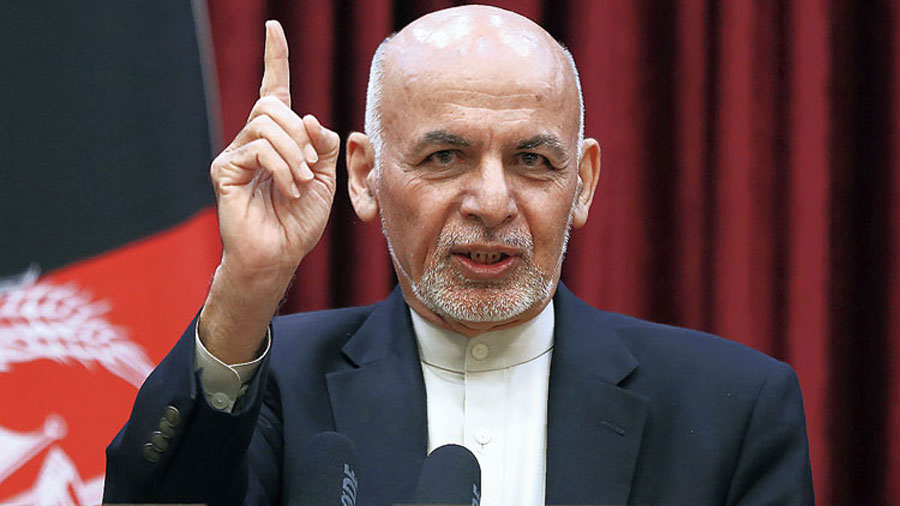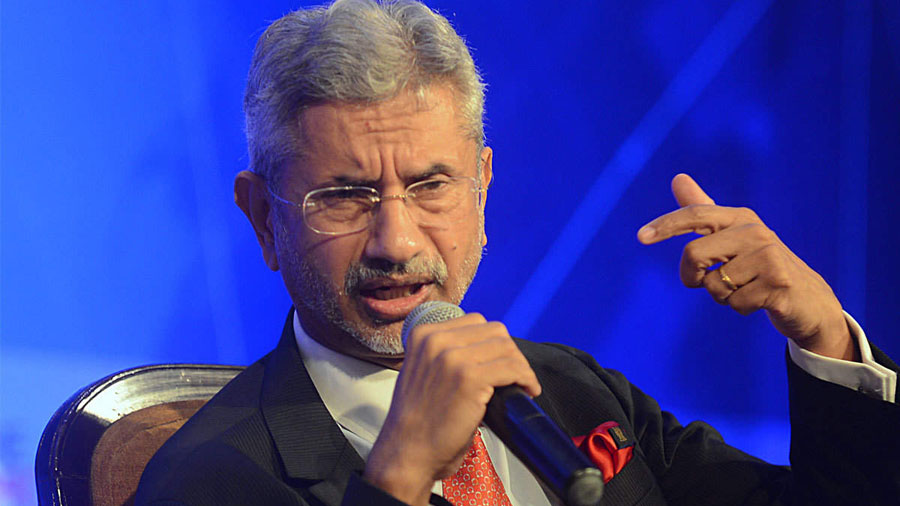It has been a diplomatic embarrassment for India in more ways than one. First there’s the unpleasant fact that Pakistan was able to convince an old Indian ally like Russia to keep us out of the March 18 Moscow conclave on Afghanistan. Even worse, Pakistan was able to convince our new friends Washington to deny us a place at the table. During a 55-minute call, Pakistan army chief Gen. Qamar Javed Bajwa prevailed on US Secretary of State Anthony Blinken, reportedly arguing that India was "a spoiler", that "cannot be given a role in the peace effort".
Russia, which wants to secure its Greater Eurasian backyard from radical groups like Daesh and the Taliban, is clearly distancing itself from Prime Minister Narendra Modi. But why has Washington which brought India into the Quad, the four-nation grouping to counter China in the Indo-Pacific, played along?
Washington has attempted to make amends. It ensured India took part in the 9th Heart of Asia conference on Afghanistan in the Tajik capital, Dushanbe on March 29-30 and also that it will be at the forthcoming six-nation U.N. peace conference in Istanbul, to be held at an unspecified date later this month.
The Turkey meet will now include the "Troika Plus One" -- the United States, Russia, China and Pakistan plus India, and Iran.
Mind you, India has a good claim to be at the high table. It has strong ties with all the major players in Afghanistan including Afghan President Ashraf Ghani -- also not invited to Moscow -- and his arch-rival, former president Hamid Karzai. Then we have links with Dr Abdullah Abdullah and also ethnic warlords like fiery Uzbek leader Abdul Rashid Dostum and others. New Delhi’s clout has been acknowledged even by US Special Envoy on peace Zalmay Khalilzad, who has won the confidence of US President Joe Biden, much as he did the Trump administration.
India is also said to have persuaded Ghani to back down from his position that he would only hand over power to an elected leader. On the last day at Dushanbe, Ghani all but agreed to be a part of an interim arrangement with the Taliban.
India also needs to drop its tired platitudes about an “Afghan-led, Afghan-owned, Afghan-controlled” peace process when it’s amply clear that the Afghans are being led, owned and controlled by non-Afghans.
Delhi, respected by Afghans across the ethnic divide, must not prop up only its Northern Alliance political protégés but widen its support by calling for a truly representative government that brings in the apolitical, educated next generation, women and minorities. It should also drop External Affairs minister S. Jaishankar’s clichéd poser of "a double peace" within and outside Afghanistan.
We need to move quickly to mend frayed ties with Moscow, as a first step towards stopping Pakistan from capitalising on its key geostrategic positioning in landlocked Afghanistan. Gen. Qamar Bajwa – and not Pakistan’s civilian leadership – confers with Blinken as he does with Khalilzad. Bajwa oversees Khalilzad’s meetings with the heads of Pakistan security agencies in Islamabad, and in Bahrain with the Afghan national security adviser Hamdullah Mohib and intriguingly, UK’s Chief of Defence Staff Gen. Sir Nicholas Carter and UK High Commissioner to Pakistan, Dr. Christian Turner.
Similarly, Russia has grown into the role of the mullahs’ most sympathetic interlocutor. Kremlin point-person on Afghanistan, Zamir Kabulov and Foreign Minister Sergei Lavrov, who set up the Moscow meet, routinely confer, not with India, but with Pakistan’s military leadership, and the Doha-based Taliban.
Most crucially, India must drive home to the Russians that a Taliban ascendancy will see the proliferation of safe havens and terror camps of Al Qaeda, Islamic State- Khorasan, Daesh or the Haqqani Network, in Pakistan. The East Turkestan Islamic Movement (ETIM) and the oppressed Uighurs will gain traction with Taliban support, and pose a threat not just to India, the West and the United States, but also to Moscow and Beijing.
Delhi should convince Russia and the US not to release another 7,000 prisoners from US and Pakistan jails in addition to the first 5,000. Then it should also make it clear there’s no need to withdraw all US-NATO troops from Afghanistan by May 1, a Taliban pre-condition for a cease-fire. Security forces blame the released Taliban for the spate of attacks on students, working women, journalists and the educated workforce as well as Afghan security forces, with many killed by sticky bombs made in Pakistan, that cannot be tracked by bomb detectors.

Afghanistan president Ashraf Ghani File picture
Clearly, the China-Russia-Pakistan confluence of interests seeks to limit the US and India’s role in Afghanistan. The joint military and naval exercises between Russia and Pakistan, and the state visits by Russian foreign and defence ministers to Islamabad, point to a bigger game in which Pakistan is working to lull Washington and Russia into believing it can be a trusted partner in peace.
Biden’s team has tried to bring India in as its watchdog. It has appointed India to head the Taliban Sanctions Committee in the UN Security Council to monitor Taliban-orchestrated violence within Afghanistan. In this role – which dovetails into its moves to keep Pakistan on the Financial Action Task Force "grey list," -- India can help direct sanctions if it’s proved that violence against Afghan civilians and other targets emanates from sanctuaries within Pakistan.
Can India do anything more to safeguard its own flanks? Taliban sources have told this writer that multiple approaches by Indian officials have been cold-shouldered and its requests that its "investments" be safeguarded have been laughed out of court. India needs to shrug off the pressure to talk directly to the Taliban and ensure that the onus on protecting its diplomatic missions, its workforce and construction projects lies with the US.
India must emphasise that only Pakistan can bring about a 90-day cessation of hostilities because it controls the Quetta Shura and also the Taliban leadership in Doha. The next steps, which include setting up an interim transitional government in the run up to a Bonn 2.0 in Istanbul and overseeing a free and fair election to a new parliament, choosing a new president and a prime minister by a popular vote, will require not one conference but several before any agreement can be hammered out. All these require Pakistan not to play spoiler.
The Bonn conference in 2001 succeeded because the Pakistan-backed Taliban had been pushed out of Afghanistan, and like-minded parties such as former King Zahir Shah-era émigrés, the Pashtun aristocracy and the Northern Alliance mujahideen and some Taliban were talking. Can a Bonn 2.0., which attempts to bring two bitter enemies together, succeed where even Doha has failed?
Obviously, the US is eager to exit from Afghanistan. But if it moves too quickly that could open the doors to a fresh ‘spring offensive’ by the Taliban and a takeover of large parts of the countryside and the main cities.
The Taliban’s also attempting to stoke resentment against the “Ghani Boys’ by spinning the narrative of corruption, accusing the head of the Central Bank of allegedly smuggling gold through a Gulf country. Then it points at three of Ghani’s cabinet members who are said to not even be of Afghan origin.
There is some talk that India is making quiet moves to promote the son of legendary Northern Alliance leader Ahmed Shah Massoud. Alternatively, the head of the powerful Durrani clan’s name is being floated to head a possible future government.
As India faces up to the reality that it has been reduced from once powerful kingmaker to backroom policeman, the Taliban’s ability to find new patrons is an alarming and fascinating replay of the past. Once it was Pakistan, Saudi Arabia and the UAE. Today if there’s one man shaking up the status quo it is Gen Qamar Javed Bajwa, as much a key interlocutor for the United States and Russia, as he is for the Doha-based Taliban. Some say the new Taliban leadership will rid itself of Pakistan’s Army, just as they did the Saudi royals, citing their little-known refusal to meet Saudi Crown Prince Mohammed Bin Salman when he arrived on an official visit to Islamabad in 2019.
With all eyes on Istanbul, Biden’s biggest challenge is to effect an honourable exit from Afghanistan, while hoping that international conferences with international stakeholders will be the quick fix. But given the power play between the Troika, the age-old conflicts that continue to divide Afghanistan’s essentially tribal society, and with nobody willing to commit to a cessation of hostilities, it looks like the "longest war" can only get longer.
(Neena Gopal is an independent foreign policy analyst and author)











